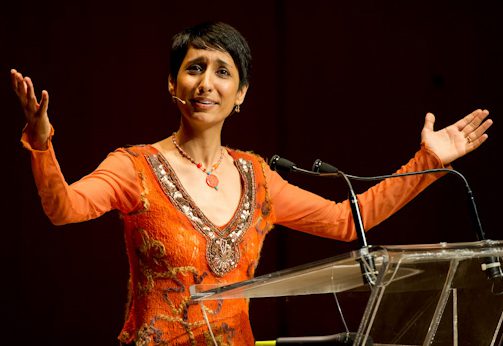Their faithful fear the day is coming when all that remains in the public’s memory of Zoroastrianism will be composer Richard Strauss’ 1896 tone poem “Also Sprach Zarathustra” — also known as the opening theme to Stanley Kubrick’s classic movie “2001: A Space Odyssey.”
http://www.youtube.com/watch?v=cWnmCu3U09wAccording to their own estimates, only 11,000 Zoroastrians remain in the U.S. They are following one of the oldest known religions, founded perhaps 1,000 years before Christ’s birth. Its philosophy is based on the teachings of prophet Zarathustra and was the predominant religion in Persia until it the invasion of Macedonia’s Alexander the Great in 334 BC.
It teaches that the god Ahura Mazda is creator of all good and no evil originates from him.
“We were once at least 40, 50 million — can you imagine?” mused Illinois psychologist Kersey Antia, senior priest at one of the few Zoroastrian temples left. “At one point, we had reached the pinnacle of glory of the Persian Empire and had a beautiful religious philosophy that governed the Persian kings.
“Where are we now? Completely wiped out,” Antia recently told Laurie Goodstein of the New York Times. “It pains me to say, in 100 years we won’t have many Zoroastrians.”
“There is a palpable panic among Zoroastrians today — not only in the United States, but also around the world — that they are fighting the extinction of their faith, a monotheistic religion that most scholars say is at least 3,000 years old,” writes Goodstein:
While Zoroastrians once dominated an area stretching from what is now Rome and Greece to India and Russia, their global population has dwindled to 190,000 at most, and perhaps as few as 124,000, according to a survey in 2004 by Fezana Journal, published quarterly by the Federation of Zoroastrian Associations of North America.
“Survival has become a community obsession,” said Dina McIntyre, an Indian-American lawyer in Chesapeake, Va., who has written and lectured widely on her religion.
An effort to create a global organizing body fell apart two years ago after some priests accused the organizers of embracing “fake converts” and diluting traditions, noted Goodstein:
“They feel that the religion is not universal and is ethnic in nature, and that it should be kept within the tribe,” said Jehan Bagli, a retired chemist in Toronto who is a priest, or mobed, and president of the North American Mobed Council, which includes about 100 priests. “This is a tendency that to me sometimes appears suicidal. And they are prepared to make that sacrifice.”
In South Africa, the last Zoroastrian priest recently died, and there is no one left to officiate at ceremonies, said Rohinton Rivetna, a Zoroastrian leader in Chicago who, with his wife, Roshan, was a principal mover behind the failed effort to organize a global body. But they have not given up.
Why is the religion vanishing? Zoroastrians believe in free will, so in matters of religion they do not believe in compulsion. They do not proselytize, so there is little growth from newcomers, notes Goodstein:
They can pray at home instead of going to a temple. While there are priests, there is no hierarchy to set policy.
Some Zoroastrian priests refuse to accept converts or to perform initiation ceremonies for children of intermarried couples, especially when the father is not Zoroastrian. The North American Mobed Council is so divided on the issue of accepting intermarried spouses and children that it has been unable to take a position.
And so, numbers dwindle ever more year after year.


